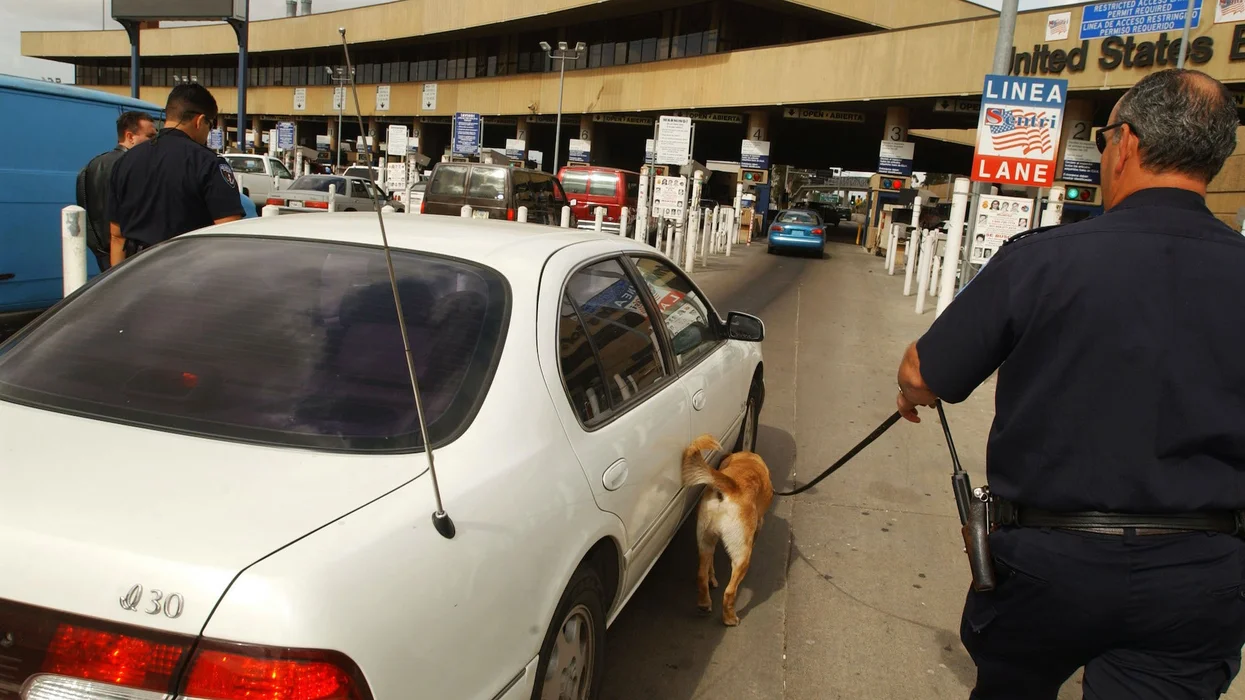
© 2025 Blaze Media LLC. All rights reserved.
Is This Owl Forcing Historic Tombstone, AZ to Fix Water Lines With 'Horses and Handtools'?
June 12, 2012
"This is not how decent human beings treat each other. It is not how federal law requires Defendants to behave."
- Tombstone, Ariz., city officials have been battling for months to make repairs to water lines that fall within federal land.
- A 1964 law bans use of heavy equipment on the land, so residents are forced to use shovels and other hand tools to make the repairs.
- There are also reports of a nesting pair of Mexican spotted owls -- a threatened species -- which have some worried, although federal officials say the owl's presence doesn't affect the work being done.
- The city has filed an appeal, which was rejected by the Supreme Court, against the government to make the necessary repairs and ensure the water supply for its more than 1,500 residents.
- The water lines were damaged during last year's wildfires and floods.
It took months of asking for permission, a lawsuit and even discussion over a federally protected animal before the residents of Tombstone, Ariz., could begin to make some long-overdue repairs to their water line system that supplies more than 1,500 people. And even after all that, the government says the residents can't even use the necessary heavy machinery to secure their town's water supply. But why?
According to the Green Valley News and Sun, more than 100 Tombstone residents were recently given permission from the U.S. Forest Service to bring in their own shovels and given until 8 p.m. on Saturday to perform work on the water lines, parts of which were damaged during forest fires and flooding last year. City Manager George Barnes explained that even in such a short amount of time, the residents could be helping prevent the spring from washing away when monsoon season comes, which was highly likely without the fix:
“If we can protect this water line with what we’ve got, then that’s wonderful,” Barnes said of the weekend’s repairs.
So why all the red tape to make necessary repairs to a water line vital for town residents? And why are residents providing volunteer manual labor to fix the lines and not machinery? As "Fox & Friends" explains, the mandate for use of only "horses and handtools" came down to the potential presence of Mexican spotted owls in the area, a threatened species, and a law banning the use of heavy equipment on the federal land.

Nick Dranias with the Goldwater Institute -- which is representing the town in their lawsuit against the government -- said there are huge boulders, steel pipes wrapped around trees, and feet of mud that the residents have to tackle using only their own elbow grease.
Watch the report:
Here is some of Goldwater's May 29 statement for an injunction pending appeal of the prior U.S. District Court decision not allowing machinery:This is not how decent human beings treat each other. It is not how federal law requires Defendants to behave. It is not how federal officers must treat a political subdivision of the State of Arizona under the Tenth Amendment. For these reasons, Tombstone’s entitlement to an injunction is indisputably clear.[...]
Denying Tombstone the ability to fully restore its municipal water system thus threatens not only Tombstone, but the entire region because the system is needed for wildfire suppression efforts—as ironically evidenced by the Forest Service’s own use of the system during the Monument Fire.

According to Cronkite News Online, Coronado National Forest Supervisor Jim Upchurch said the spotted owl is "not the reason why we’re not allowing Tombstone to do anything." He said, “The main point is that Tombstone has access to the water they had before the fire.”
Still, Cronkite News reports city officials have "not provided sufficient detail" that would allow the use of machinery on this federally protected land. A law from 1964 prevents heavy equipment. With a special permit for the work, they are limited to more manual forms of labor and in the 100 degree heat only about 75 of the 100 volunteers were able to make it to the work site on Saturday. Harv Twite, a member of what's being called the Tombstone Shovel Brigade, said another work session is being planned for October when the temperatures are cooler.
Others are looking to what is happening in Tombstone as a "cautionary tale." Mesquite, Nev., for example, has environmental groups hoping to turn "a large swath of the Gold Butte desert region" into conservation land, according to The Mesquite Citizen. Under the land is enough water to supply more than 5,000 homes. Even though the city would still hold the water rights should the proposal for protected land go through, as Tombstone is experiencing, "it may not matter" the Mesquite Citizen writes.
The Green Valley News and Sun reported that Rep. Jeff Flake (R-Mesa) gave a testimony Friday supporting his "Emergency Water Supply Restoration Act," which would allow all local jurisdictions to "get a water source to where it was before, and that that trumps everything else." "The health and safety of the citizens is paramount," he said.
Watch his testimony to the House Natural Resources Committee:
Want to leave a tip?
We answer to you. Help keep our content free of advertisers and big tech censorship by leaving a tip today.
Want to join the conversation?
Already a subscriber?
more stories
Sign up for the Blaze newsletter
By signing up, you agree to our Privacy Policy and Terms of Use, and agree to receive content that may sometimes include advertisements. You may opt out at any time.
Related Content
© 2025 Blaze Media LLC. All rights reserved.
Get the stories that matter most delivered directly to your inbox.
By signing up, you agree to our Privacy Policy and Terms of Use, and agree to receive content that may sometimes include advertisements. You may opt out at any time.





